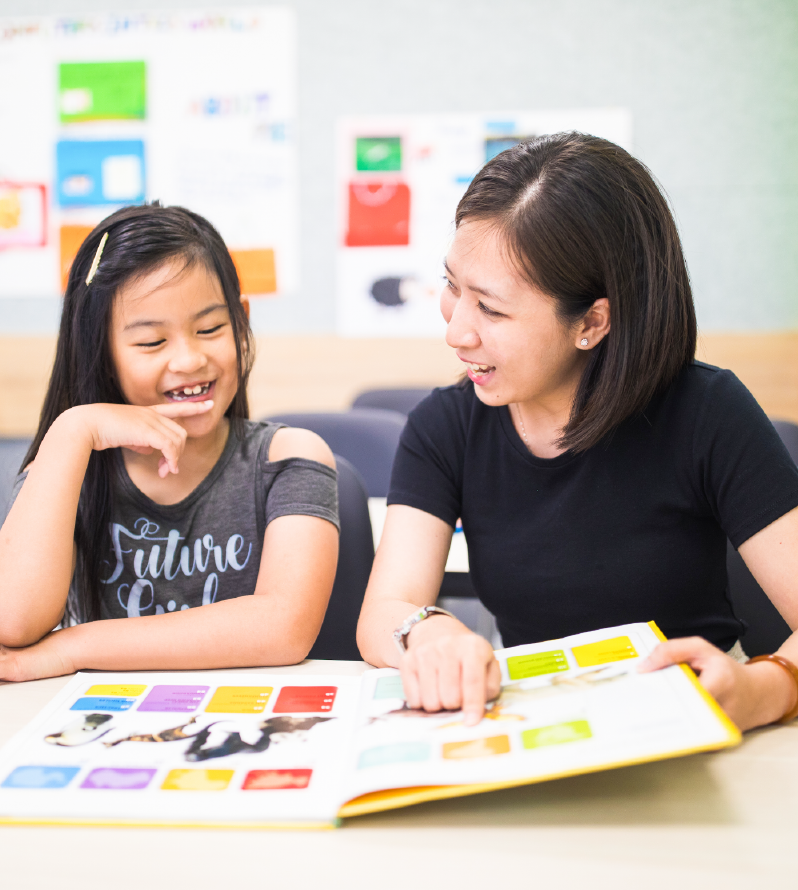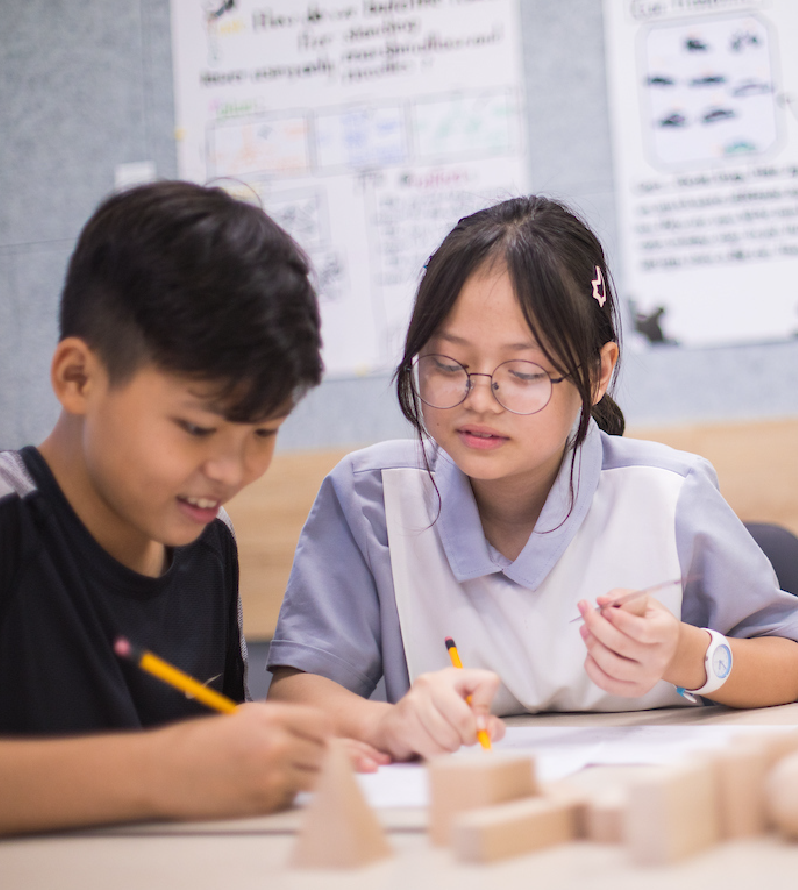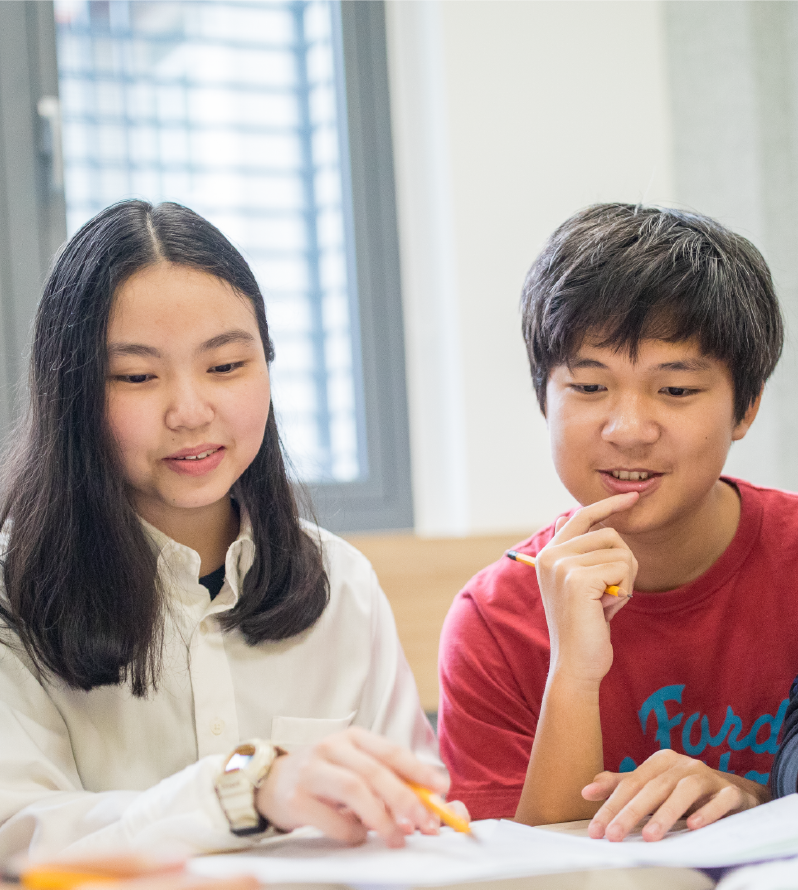Starting school at an international school marks a significant turning point for many students. It’s an opportunity for them to tap into the abundant resources the school offers and invest in their holistic development, both in terms of knowledge and skills, to excel at an international learning environment.
During the initial phase of enrollment at an international school, your child is undoubtedly going to face numerous changes and new experiences, ranging from teachers, classmates, curriculum, teaching methods, and extracurricular activities, among others. Therefore, in order to good start at the beginning of the school year, your child needs to focus and put in even more effort in their studies compared to previous years. As parents, you play a crucial role as their steadfast companions, providing encouragement, guidance, and helping them have the essential preparation early.
In this article, we will explore how to help your child establish a strong foundation in English, set specific goals for the new school year, and equip them with the necessary skills to be always ready to embrace new and exciting experiences. Furthermore, your child’s smooth academic journey at this school cannot do without dedicated allies who will support them in conquering any goals within the international school environment. Keep reading the following article to gain a deeper understanding of the steps your family should take to prepare your child for this adventure!
1. Building a Strong Foundation in English
English proficiency plays a pivotal role in a student’s journey at an international school. With English proficiency, students hold the key to unlocking opportunities across various subjects.
Recognizing this, in most international schools, students are encouraged to use English as their primary language for communication. They are consistently urged to communicate exclusively in English with their peers, teachers, and staff to cultivate habits and fluency in this second language. High-achieving students are those who dare to overcome language barriers to integrate into the community. This not only helps students develop their language skills but also broadens their understanding of different cultures.
Confidently communicating in English with native speakers and conversing solely in English is just the beginning. According to educators at Everest Education, when English is not a student’s native language at an international school, it typically takes about a year to develop conversational English and approximately three years to master academic English. Academic English is a subject that students need to be exposed to early on to practice report writing, essay composition, presentations, and research in various fields. Therefore, if the focus remains solely on communication and grammar, students’ academic English skills may not see significant improvement.

Understanding this, at Everest Education, we help students enhance their academic English skills through a program rooted in the U.S. Common Core definition of English Language Arts. This program trains students to comprehend literary works, complex texts, and equips them with foundational knowledge and argumentation skills in various fields.
Through the English Language Arts program, students can enhance their critical thinking, problem-solving abilities, and analytical skills, among other essential elements necessary for a student’s success in an international learning environment.
2. Starting with Specific Goals
Not only in international schools but also in most regular schools, students are often encouraged to set academic goals at the beginning of the new school year. This activity plays a crucial role in motivating and inspiring children to prepare for and focus on a new semester. Therefore, during this phase, parents and teachers can ask their children about meaningful and realistic goals they want to achieve, then choose the most appropriate goal and plan specific steps for its implementation. A simple way to help children set effective goals that parents can consider is the WOOP method.

WOOP is essentially an acronym that stands for Wish, Outcome, Obstacle, and Plan. WOOP is a practical psychological method that has been researched and proven to help us discover, achieve our dreams, and change our daily habits.
>>> Learn more: 4 Steps To Set Your Goals For The Best School Year Ever!
To optimize it, each student should divide their goals into long-term and short-term goals. For long-term goals such as obtaining an international certificate, we will need to go through a continuous and extended training process. However, students can break down shorter-term goals on a weekly or monthly basis to get closer to that long-term goal. For example, if a student’s long-term goal is to achieve an SAT score of 1300+, they can break it down into shorter-term goals for each month, such as spending the first 2 months enhancing their knowledge in Math and reading comprehension in English and practicing SAT questions in the following month.
Where learning meets joy
with friends and teachers who care
3. Being Proactive and Independent
Success in an international school is not only about academics but also demands students to be able to integrate into their environment. Therefore, equipping your child with proactive and independent skills is essential.
Firstly, your child should know how to identify their strengths and weaknesses to proactively find ways to excel or seek assistance from teachers to address any shortcomings. In international schools, teachers always encourage and highly value students who request help, ask questions, and are not afraid to express their viewpoints and opinions. Moreover, this skill requires students to actively prepare their lessons before coming to class, take the initiative to practice skills during lessons, and explore various aspects of the lesson content.

Furthermore, the skill of independence should also be introduced and cultivated in students from an early age. For elementary school students, independence can be demonstrated through activities such as preparing their study materials, arriving at school on time, organizing their belongings after lessons, or even dressing themselves. Therefore, parents should create opportunities and encourage their children to be independent at home to facilitate a smoother transition into an international learning environment.
4. Willingness to Explore New Things
When starting their first year at an international school, your child will undoubtedly encounter many unfamiliar aspects, especially if they have previously been accustomed to the methods of public schooling. Speaking of these new changes, we must consider new teaching and learning approaches, a multicultural communication environment, or the need to adapt to advanced learning devices, and so on.

For example, during the initial period, your child will need to gradually become familiar with new learning methods. The educational approach in international schools will differ significantly from traditional teaching methods in Vietnam. In the Western teaching model, which heavily relies on scientific research, objective observation, and evaluation of phenomena, learning methods place the learner at the center. Teaching often follows thematic or project-based approaches and utilizes inquiry-based learning methods. Teachers at international schools regularly update their knowledge and advanced teaching methods through courses and educational workshops to provide students with the highest quality education. Therefore, your child needs to be fully prepared to actively absorb and become acquainted with these new concepts. Accessing the best learning conditions will pave the way for your child to excel and succeed in the future.
5. Finding a Suitable Study Companion
Navigating the entrance exam for the international school may have posed a challenge for some students at the beginning of the new academic year. They had to diligently review and master both Math and English knowledge comprehensively, and find a suitable study buddy to devise a strategy to achieve the highest score on the entrance exam. This might seem like a small and easy step, but there were still quite a few students who struggled because they were not familiar with the format and content of this exam.

Understanding the needs of families who want their children to become familiar with the question formats in the entrance exams of international schools, at Everest Education, we organize free practice tests that simulate the MAP Test for students from grades 2 to 8. The practice tests at E2 are designed to closely resemble the actual MAP Test as much as possible, conducted on paper with two main mandatory sections: Math and English Reading (90 minutes), and students can also register for the English Writing section (45 minutes). Through the results of the test, families can assess their child’s current abilities and receive guidance to help them improve the necessary knowledge and skills for the actual exam.
>>> Register for the international school entrance practice test at Everest Education HERE
After successfully overcoming this initial challenge, if there is no preparation for the next journey, children are likely to feel overwhelmed by the many changes in a new learning environment. This is especially true for students coming from public schools. To have a smooth start in the new school year, children need to put in more effort and have someone to support them on their knowledge exploration journey.
With over 12 years of experience, Everest Education has become a reputable educational partner for many students currently studying or preparing to attend international schools. Everest is confident in accompanying students through every stage: building a solid foundational knowledge to study at international schools, providing an internationally standardized learning environment for students to get acquainted with, and preparing them with strategies for entrance exams, laying the foundation for their “leap” in the coming years.
EXPLORE OUR SUPPORTS





















